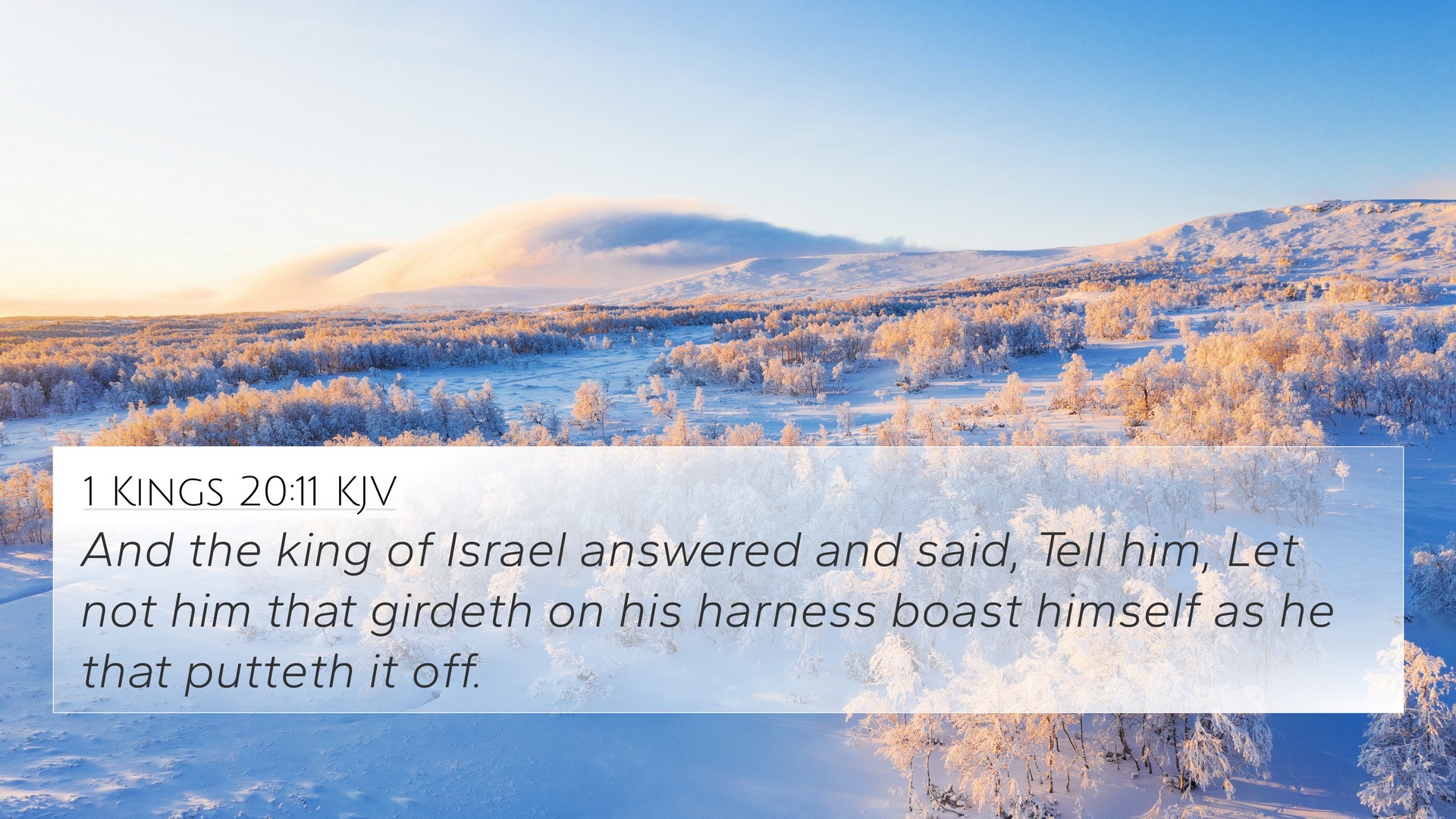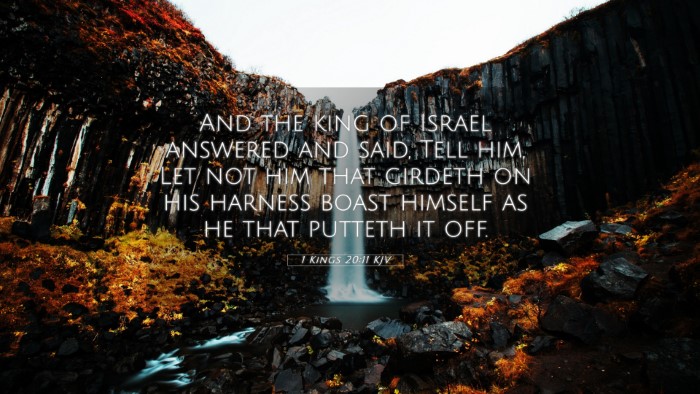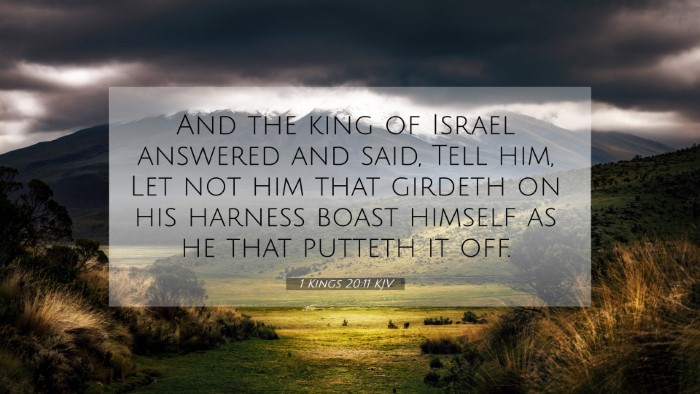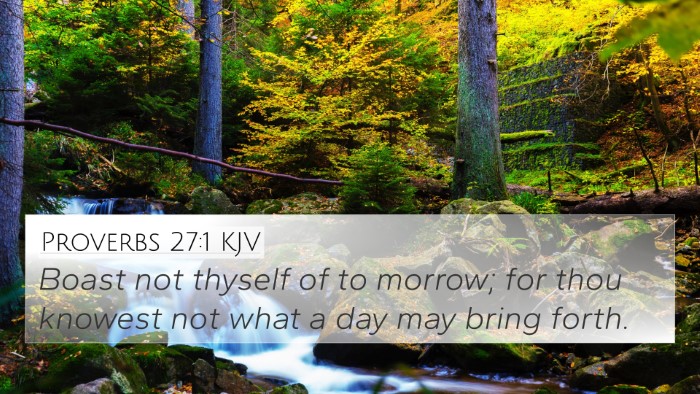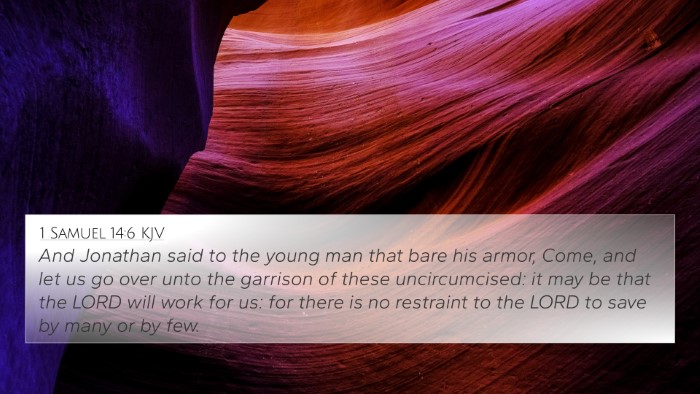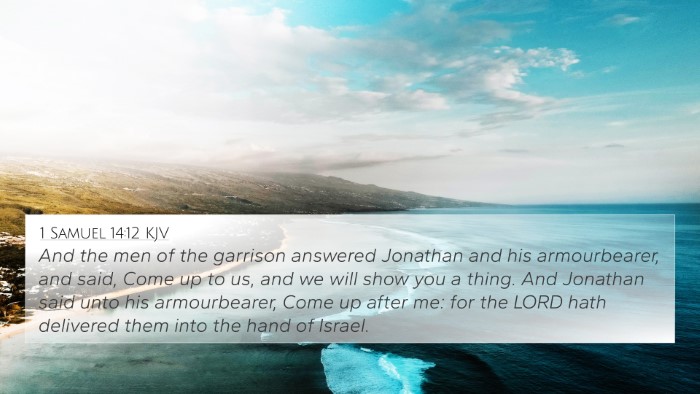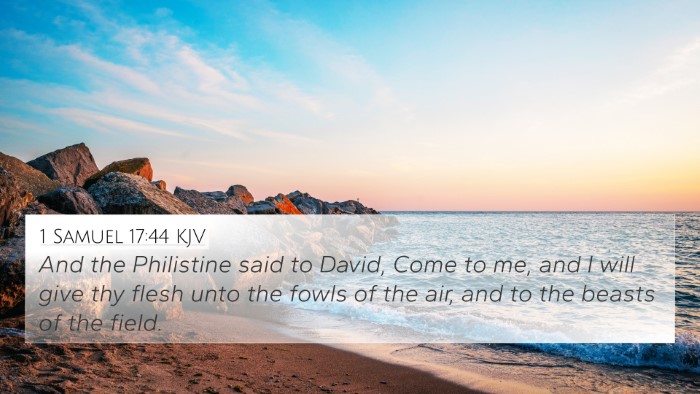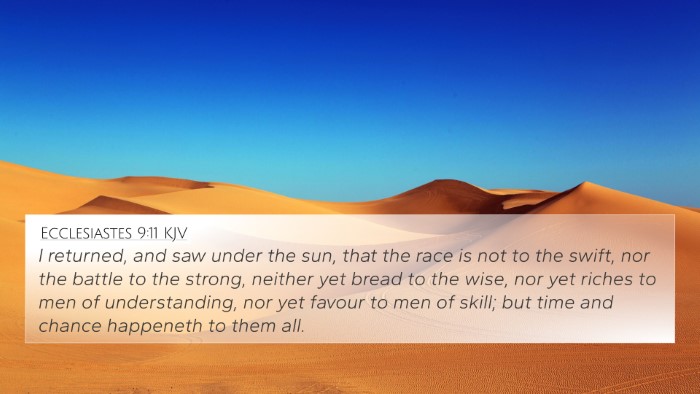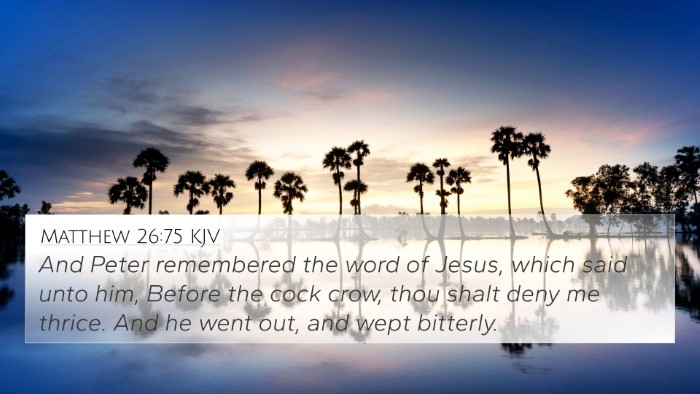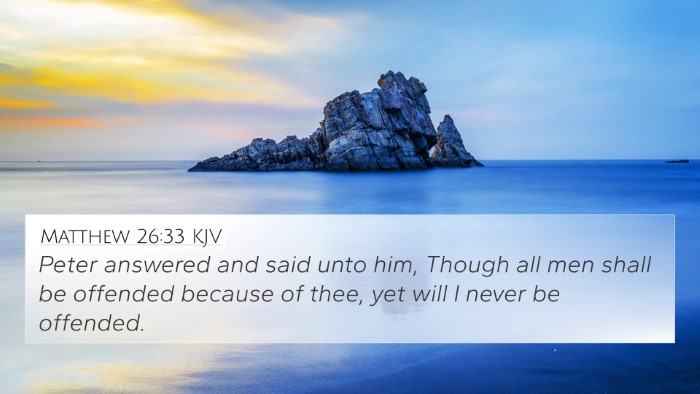Understanding 1 Kings 20:11
Verse: "And the king of Israel answered and said, Tell him, Let not him that girdeth on his harness boast himself as he that putteth it off." (1 Kings 20:11)
Meaning and Interpretation
This verse can be interpreted as a caution against overconfidence in preparation for battle and the tendency of those who prepare for conflict to boast about their readiness. The king's response highlights the need for humility, regardless of one’s position or level of preparedness.
Commentary Insights
-
Matthew Henry's Commentary
Henry emphasizes that the king's statement serves as a reminder that those who enter into a struggle should not become boastful about their strength or might before the victory is achieved. The phrase indicates that one’s confidence should not overshadow the reality of outcomes in life’s battles.
-
Albert Barnes' Notes
Barnes notes that boasting before a victory is imprudent. The metaphor of “girding on” the harness suggests someone preparing for battle, while “putting it off” conveys the outcome of that battle. Success cannot be assured merely by preparation; true victory lies with God.
-
Adam Clarke's Commentary
Clarke comments on the cultural context of this verse, referencing how boasting was often common among warriors in ancient times. He explains that the implication is not just about warfare but about the wisdom of humility and the need to recognize that the outcome is ultimately in divine hands.
Cross-References
This verse connects to several other scriptures that discuss the themes of pride, humility, and the unpredictability of life’s battles:
- Proverbs 16:18: "Pride goes before destruction, and a haughty spirit before a fall." This illustrates the danger of overconfidence.
- Romans 12:3: "For by the grace given to me I say to everyone among you not to think of himself more highly than he ought to think." This emphasizes humility.
- James 4:6: "But he gives more grace. Therefore it says, 'God opposes the proud, but gives grace to the humble.'" This reinforces the consequence of pride.
- 2 Corinthians 10:12: "Not that we dare to classify or compare ourselves with some of those who are commending themselves." A warning against boasting.
- 1 Corinthians 15:10: "But by the grace of God, I am what I am." Acknowledging that success comes from divine grace, not self-reliance.
- Psalms 20:7: "Some trust in chariots and some in horses, but we trust in the name of the Lord our God." Putting trust in God over personal strength.
- Ecclesiastes 9:11: "The race is not to the swift, nor the battle to the strong." A reminder that not all outcomes are determined by ability or preparation.
Thematic Bible Verse Connections
The verse from 1 Kings 20:11 can be connected to broader themes in Scripture regarding:
- Divine Providence: Where God's control over events surpasses human preparation (Job 42:2).
- Humility in Leadership: Exemplified in Christ’s teachings (Matthew 23:12).
- The Uncertainty of Life's Circumstances: Illustrated in human experiences and God’s sovereignty (Proverbs 19:21).
Utilizing Bible Cross-References
For those looking to delve deeper into cross-references related to 1 Kings 20:11, consider utilizing tools such as a Bible concordance or a cross-reference guide. These resources offer:
- A means to identify connections between Old and New Testament scriptures.
- A detailed cross-reference system to enhance understanding.
- Methods for cross-referencing Bible studies to explore themes deeply.
Conclusion
1 Kings 20:11 serves as a profound reminder of the balance between preparation and humility in the face of life’s challenges. By linking this verse with others through comparative Bible verse analysis, believers can gain a multilayered understanding of the importance of trusting in God’s sovereignty rather than relying solely on human strength.
